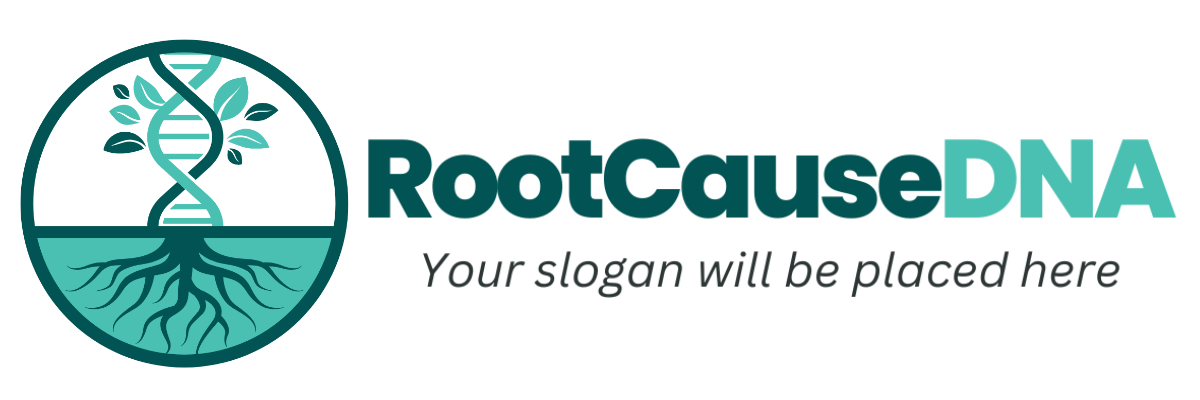Uncover Hidden Genetic Roadblocks
Uncover Hidden Genetic Roadblocks
Uncovering hidden genetic roadblocks involves identifying genetic variations that may influence health but remain undetected without specialized testing. Here's how you can approach this:
1. Comprehensive Genetic Testing
Advanced genetic testing methods can reveal elusive genetic mutations:
• Nutrigenomix: Offers comprehensive tests for health and wellness, athletic performance, and fertility, analyzing how genes impact weight and other health factors.
• GenoPalate: Utilizes advanced genetic analysis to offer personalized nutrition plans, focusing on improving metabolic health through tailored dietary insights.
• Inagene: Provides analysis of your DNA for personalized nutrition and fitness insights, affecting areas such as weight management and cardiometabolic health.
2. Genetic Counseling
Consulting with a genetic counselor is crucial for interpreting test results and understanding their implications:
• Risk Assessment: Evaluating personal and family medical histories to assess the likelihood of genetic disorders.
• Education: Explaining inheritance patterns, potential health risks, and the significance of genetic findings.
• Support: Providing guidance on decision-making related to genetic health and connecting families with support networks.
3. Undiagnosed Disease Programs
Participating in specialized programs can aid in diagnosing rare or elusive genetic conditions:
• NIH Undiagnosed Diseases Program (UDP): Aims to provide answers to patients with mysterious conditions that have long eluded diagnosis and to advance medical knowledge about rare and common diseases.
• Undiagnosed Rare Disease Clinics: Facilities like the one at Indiana University evaluate patients suspected of having genetic disorders not identified through standard testing.
4. Advancements in Genetic Research
Ongoing research continues to uncover hidden genetic factors:
• Functional Genomics: Studies emphasize the importance of functional analysis in diagnosing rare genetic disorders, enhancing therapeutic approaches.
• Innovative Diagnostic Tools: Techniques identifying hard-to-find gene mutations in a fraction of the body's cells have been developed, aiding in the diagnosis of conditions like brain malformations.
By integrating comprehensive genetic testing, professional counseling, and participation in specialized programs, you can uncover hidden genetic factors that may impact your health, leading to more personalized and effective healthcare strategies.
Uncovering hidden genetic roadblocks involves identifying genetic variations that may influence health but remain undetected without specialized testing. Here's how you can approach this:
1. Comprehensive Genetic Testing
Advanced genetic testing methods can reveal elusive genetic mutations:
• Nutrigenomix:
Offers comprehensive tests for health and wellness, athletic performance, and fertility, analyzing how genes impact weight and other health factors.
• GenoPalate:
Utilizes advanced genetic analysis to offer personalized nutrition plans, focusing on improving metabolic health through tailored dietary insights.
• Inagene:
Provides analysis of your DNA for personalized nutrition and fitness insights, affecting areas such as weight management and cardiometabolic health.
2. Genetic Counseling
Consulting with a genetic counselor is crucial for interpreting test results and understanding their implications:
• Risk Assessment:
Evaluating personal and family medical histories to assess the likelihood of genetic disorders.
• Education:
Explaining inheritance patterns, potential health risks, and the significance of genetic findings.
• Support:
Providing guidance on decision-making related to genetic health and connecting families with support networks.
3. Undiagnosed Disease Programs
Participating in specialized programs can aid in diagnosing rare or elusive genetic conditions:
• NIH Undiagnosed Diseases Program (UDP):
Aims to provide answers to patients with mysterious conditions that have long eluded diagnosis and to advance medical knowledge about rare and common diseases.
• Undiagnosed Rare Disease Clinics:
Facilities like the one at Indiana University evaluate patients suspected of having genetic disorders not identified through standard testing.
4. Advancements in Genetic Research
Ongoing research continues to uncover hidden genetic factors:
• Functional Genomics: Studies emphasize the importance of functional analysis in diagnosing rare genetic disorders, enhancing therapeutic approaches.
• Innovative Diagnostic Tools: Techniques identifying hard-to-find gene mutations in a fraction of the body's cells have been developed, aiding in the diagnosis of conditions like brain malformations.
By integrating comprehensive genetic testing, professional counseling, and participation in specialized programs, you can uncover hidden genetic factors that may impact your health, leading to more personalized and effective healthcare strategies.
